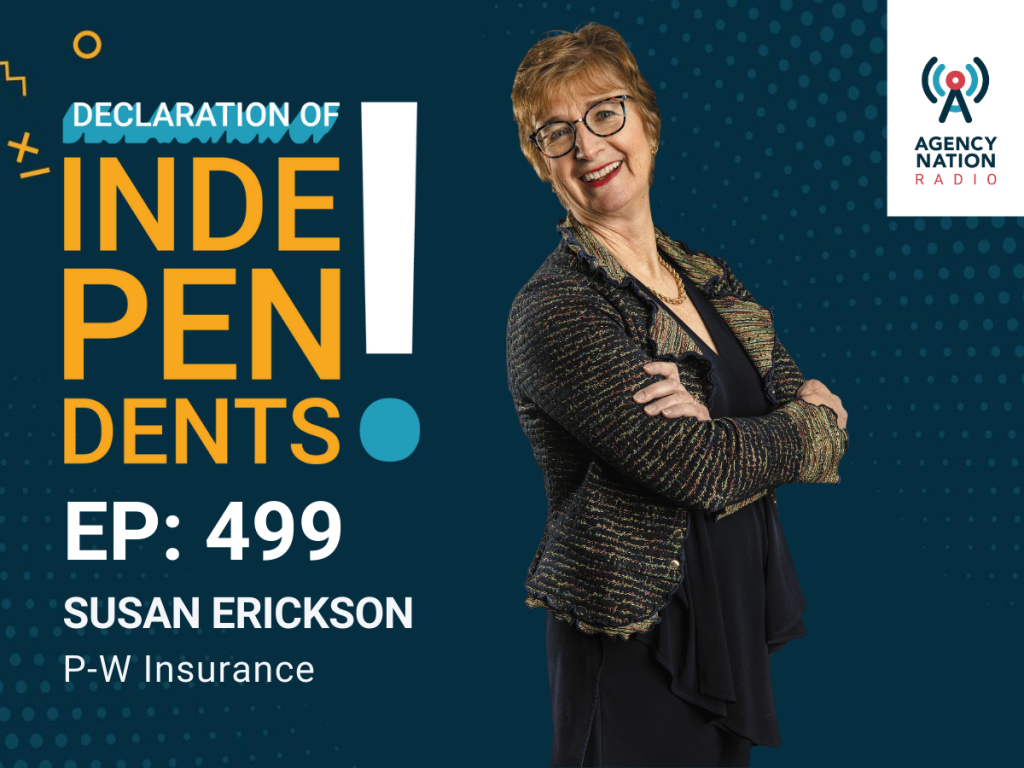Small Shop, Big City: The New Face of the Small Agency

By: Russ Banham
Rather than open the doors of her one-person agency on Main Street America, Julie Davison chose to do it in the burgeoning city of Fort Myers—the commercial heart of Lee County, Florida, with a population of 661,000.
Urban centers have long been a difficult proposition for startup agencies, given the challenge of acquiring direct appointments with insurance carriers. For decades, the general consensus among large insurers was that a startup business in a metropolitan center would not fare well against more established agencies in the same city. The stalwart entrepreneurs who bucked this trend typically relied on a market access provider to gain a foothold.
But Davison was able to lock up 20 insurance markets within a month of incorporating Davison Insurance Agency. Although she had previously worked as an agent at both State Farm and in the insurance division of AAA, winning multiple awards for sales, she only had six months of experience at an independent agency before breaking free to launch her own firm.
“I figured if the business wasn’t paying for itself in six months, I’d go back to working for someone else,” Davison says.
One year later, the agency was not only paying the bills, but comfortably in the black, with 30 carriers competing for Davison’s customers. The one-person agency is growing so fast that Davison anticipates onboarding three or four customer service representatives and relocating to a roomier office within five years—and expanding to a second location in Naples with a full staff in 10.
“I’m interested in growth,” Davison says, “but slow and steady as it goes.”
A New Face
Davison is not alone in her desire to locate an independent insurance agency in an urban metropolis. According to the 2016 Future One Agency Universe Study, a collaborative effort of the Big “I” and independent agency companies, more small agencies are gravitating away from rural small towns in favor of larger cities.
Although the study isn’t granular enough to know for sure, “it could be that they sense more opportunity for growth and success in a larger city, as opposed to a suburban or rural environment,” says Courtney Roberston, senior research director at Zeldis Reseach, which has conducted the study since 2012. “Other findings indicate that technology is helping smaller agencies be leaner, more cost effective and agile. Plus, there are just so many more people and businesses in an urban area to sell to.”
Many of these agents are millennials like Davison, 34, who are just beginning to make a mark in their careers. They’ve migrated to large cities across America—urban areas that had been down on their luck for decades but are now in the midst of extraordinary revitalization.
As young people flock to once-dicey neighborhoods like Yesler Terrace in Seattle, Wicker Park in Chicago and Echo Lake in Los Angeles, similar gentrification is fast underway around the rest of the U.S., resulting in a mini economic boom. All the new businesses and people in these suddenly bustling communities need insurance—hence the many startup agencies dropping anchor.
The study reports that the proportion of small agencies in large metropolitan areas now accounts for 57% of all small agencies, compared to 50% in 2014—“a pretty sizable leap,” says Madelyn Flannagan, vice president and research, education and agent development at the Big “I.”
“Lots of young people gravitate to the city to look for a job,” Flannagan explains. “They may have a degree in a particular area and find that it is difficult to get a job in that business. They’re technologically sophisticated and learn that an insurance agency can be launched pretty inexpensively using cloud-based systems and applications. This appeals to their interests in technology, entrepreneurialism and independence.”
In some cases, young agents run their one-person shop from their apartments. Others operate in shared office environments. For someone who prefers not to work at home, this phenomenon, called co-working, is a way to share the cost of an office with other like-minded entrepreneurs.
“You have all these energetic, smart, innovative and creative people who are not in your line of business, but nonetheless allow for a communal experience,” Flannagan says. “And these people and their companies also happen to need insurance.”
Making It Work
Insurance companies that serve independent agencies are increasingly aware of the emerging potential of small urban agencies. The Agency Universe Study reports that 27% of small agencies do not need to resort to using a market access provider to find business—up from 22% in 2014.
According to Robertson, the data points to more direct carrier appointments overall: Carriers provided an average of 7% of appointments for standard personal lines in 2016, up from 5.5% in 2014.
Davison Insurance Agency primarily writes personal lines, although it also dabbles in small commercial and life insurance. When Davison first went off on her own after just six months as a producer at another independent agency, she hedged her bets and signed up to meet a few carrier representatives through the Florida Association of Insurance Agents. This gave Davison the initial markets she needed to hang out her sign.
Today, Davison rents a small office at a strip mall and manages the entire business herself—bookkeeping, accounting, sales, customer service and everything in between. “I do mainly homeowners and auto insurance, and boats, RVs and motorcycles, which a lot of people have in this area,” Davison says. “That’s my focus, although I also do a little general liability and some small commercial and life business. I love personal lines.”
It’s the “personal” part that appeals most to Davison. “I take good care of my customers and write only quality business for the carriers,” she says. “If I have to stay up to all night to work on a quote that a client needs, I do it. All phone calls are forwarded to me after work hours. Whoever calls gets a human being on the line who answers no matter what time it is—me.”
The Future of ‘Small’
Like many young agents, Davison also takes advantage of modern technology tools, including a cloud-based agency management system, comparative rater and email marketing through Vistaprint, a website domain hosting company.
“I maintain regular email contact with clients and also send out a monthly newsletter that offers helpful hints, such as the right amount of coverage to buy,” Davison explains. “I also leverage the newsletter to plant seeds among my automobile policyholders, who are likely to own a condo or house someday.”
While Davison is only one year into her career as an agency principal, she’s astonished at how quickly the business has grown. But she’s had little difficulty nurturing ongoing referrals from local banks, mortgage brokers and realtors, and her five- and 10-year strategic plans are built on a solid foundation. Eventually, Davison plans to broaden the menu of insurance products her agency sells, beefing up the commercial lines side of the house in particular. “Just talking about all this gets me excited,” she laughs.
The young entrepreneur fits right into one of the paradigms the Agency Universe Study found correlates to startup agencies: She’s a woman. “In looking at the survey findings, a lot of the smaller agencies that have started up lately in metropolitan areas are owned by women,” Flannagan says. “We’re not sure why.”
A small startup insurance agency can offer exactly what many entrepreneurial millennials are hunting for—whether they know it yet or not.
As Flannagan puts it, “suddenly, insurance is hip.”
Russ Banham, a Pulitzer-nominated business journalist, has been an IA contributor for more than 25 years.
The Value of NumbersJulie Davison never planned on a career in insurance. She fully expected to become a mathematics teacher. In college, Davison interned as a high-school math teacher, tutoring students a year or two younger than she was. The position didn’t earn her much respect; she had attended the same high school just one year earlier. Her father intervened, advising her to finish graduate school and get a business degree instead of jumping into teaching full time.“He owned his own business and thought it would be a good idea,” Davison says. “I agreed.” While in graduate school at the University of Phoenix, Davison took a position as a part-time receptionist at State Farm in Estero, Florida—but still had no interest in insurance as a career. “I ended up really liking the business,” she says. “My boss wanted me to stay and offered to pay me more than I could earn as a high-school teacher. I said, ‘No, I really want to teach math.’ But I took his advice and ended up getting my Florida 4-40 customer service license.” Davison loved chatting with the agency’s customers, listening to their needs and offering counsel. Finally, she realized teaching math was no longer her life’s ambition. She made an abrupt career change and obtained licenses to sell personal lines and life insurance. “I asked my boss how I would possibly learn all this stuff, and he said, ‘It just takes time,’” she recalls. “I’m always eager to learn, so I called up our competitors and asked for automobile and homeowners insurance quotes. I got copies of the policy jackets and studied them day in and out. With my math skills, I was able to get to the point that when someone called with a house that had a hip roof, I could quote them the premium pretty much to the dollar.” When State Farm pulled out of the homeowners market in 2009, Davison joined AAA, the roadside assistance company, which had an insurance division in Naples. “I worked my way from the ground up,” she says. “I eventually sold insurance and then, taking a page from my teacher’s background, obtained a license to teach defensive driving and a safe driving course to teenagers. I also trained new agents.” When her golf pro husband got a job in Fort Myers in 2014, Davison left AAA and became a producer at a local independent insurance agency. Six months in, she quit to launch her own. She reached out to a cluster group of agents out of concern for her ability to obtain direct carrier appointments, but didn’t like the terms of the agreement. “I didn’t want to work for someone and then have to buy back my own business,” Davison says. “Why should they get the benefit of my hard work? My husband was concerned, but I told him, ‘I don’t need them, anyway.’” —R.B. |










